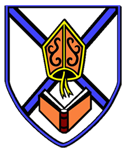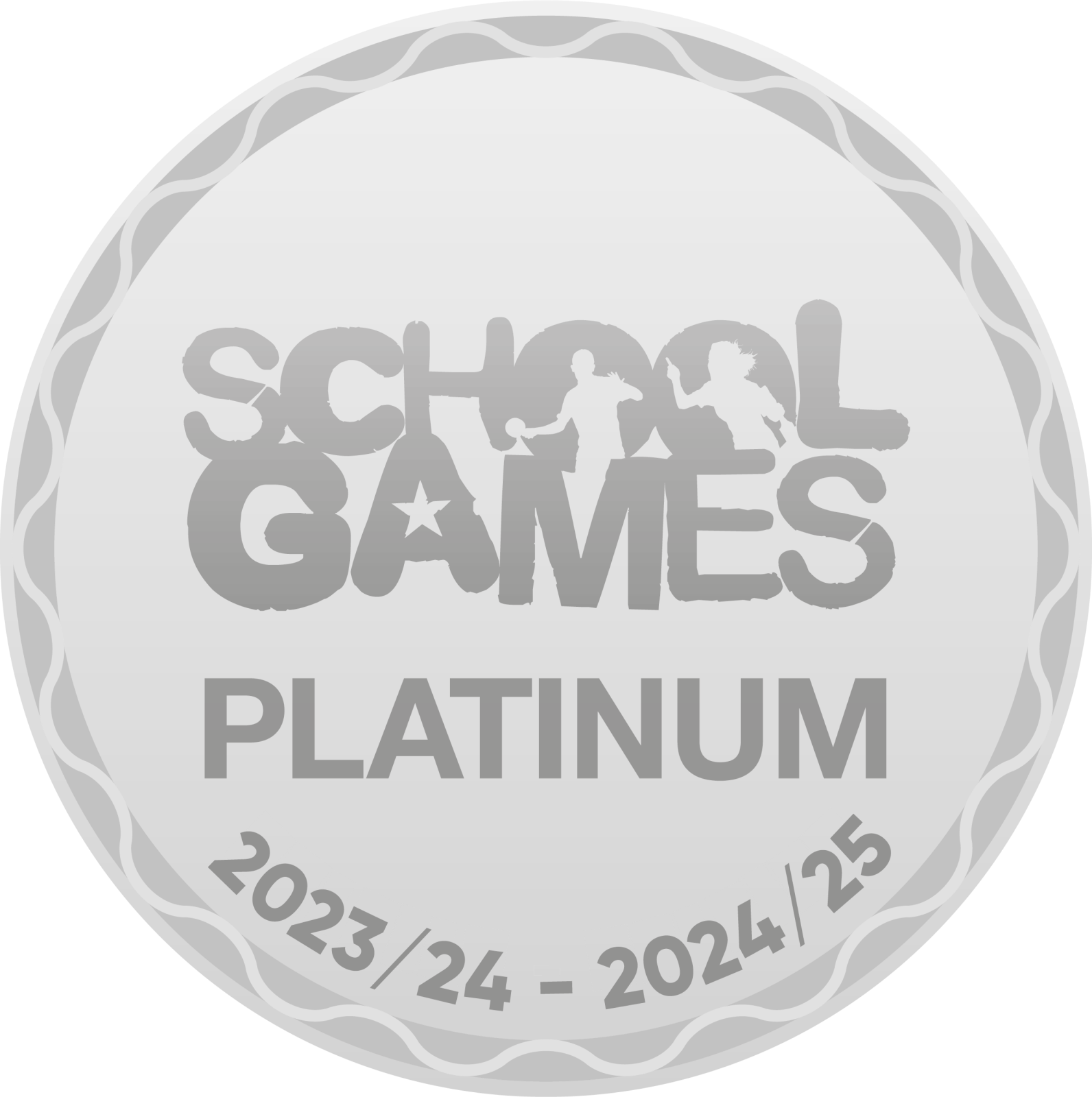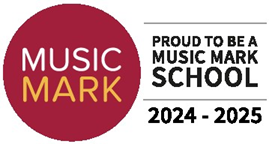Personal, Social & Health Education
“You are braver than you believe, stronger than you seem and smarter than you think.” A.A. Milne
“You never really understand a person until you consider things from his point of view... Until you climb inside of his skin and walk around in it.” - Harper Lee
Intent
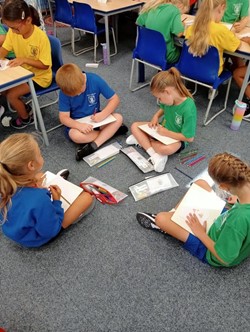
At Thomas A Becket Junior School, we believe that PSHE helps to give children the knowledge, skills and understanding they need to lead confident, healthy, independent lives, in order to become informed, active and responsible citizens. The work we do in PSHE encompasses our Relationships, Sex and Health Education (RSHE) - please see our RSHE page for further information on this.
PSHE flows through all other curriculum areas and where topics are encountered more than once we have ensured that children have the opportunity to develop and deepen their already embedded understanding. This process allows them time to reflect and build on their knowledge and understanding of themselves, their community and the wider world.
Our school provides a balanced and broad curriculum which promotes pupil wellbeing. We believe that the development of a child’s personal, social and health education underpins all of the school’s aims. The PSHE objectives underpin our curriculum and give our children the opportunity to consider what the knowledge and understanding in all lessons means to them. It helps them to develop the skills and strategies they need to apply this knowledge in their real lives, to make safe and informed decisions. We believe it is important that every child understands what “being healthy” and “staying safe” means and how to achieve these. The PSHE curriculum complements our ‘TAB Way’ vision with an emphasis on developing positive relationships within a range of communities.

Implementation
PSHE educa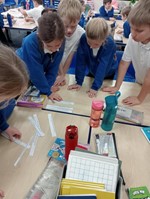 tion is essential and sits at the heart of our curriculum and our school ethos at Thomas A Becket Junior School. In line with the PSHE association, we have broken down the national curriculum PSHE objectives into three broad categories - relationships, health and living within the wider world. Each week, children have a 30 minute PSHE/ RSHE session with their class teacher which will involve discussion using the talk phrases and active learning. At all points, teachers ensure to signpost students to resources and further support if they feel that they - or someone they know - needs this.
tion is essential and sits at the heart of our curriculum and our school ethos at Thomas A Becket Junior School. In line with the PSHE association, we have broken down the national curriculum PSHE objectives into three broad categories - relationships, health and living within the wider world. Each week, children have a 30 minute PSHE/ RSHE session with their class teacher which will involve discussion using the talk phrases and active learning. At all points, teachers ensure to signpost students to resources and further support if they feel that they - or someone they know - needs this.
Impact
We want children to - 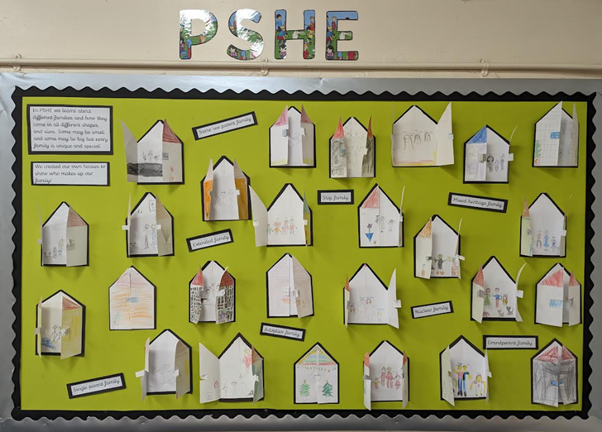
-
be ready for the opportunities and experiences of later life.
-
value themselves and others, acknowledging and appreciating both difference and diversity.
-
make informed choices so that they grow into positive and active citizens within our democratic society.
-
know and understand how to live and maintain a healthy lifestyle.
-
know how to stay safe and recognise when relationships are unhealthy.
-
understand and manage their emotions.
-
develop feelings of confidence, self-respect and empathy
Pupil Voice Quotes
“Teachers help us feel comfortable talking about our emotions and feelings with them."
"I feel like I understand different relationships in my life and I could recognise an unhealthy one."
"I like learning about the ways different people live their lives."
"In PSHE I love that I can imagine myself in the future."
pshe curriculum overview 2023 2024.pdf
British Values
In line with the Department for Education guidelines, we actively promote British values in our school to prepare children for life in modern Britain. We encourage children to respect people of all faiths, races, and cultures and to understand that while individuals may have differing views on what is 'right' and 'wrong,' all people in England are subject to its laws.
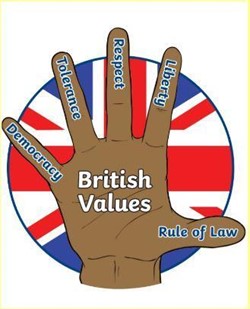
The Key British Values are:
- Democracy
- Rule of law
- Individual liberty
- Mutual respect
- Tolerance of those of different faiths and beliefs
We actively promote British values through
- Demonstrating how the school’s work effectively secures these values.
- Challenging any opinions contrary to British values expressed by children, staff, visitors, or parents.
- Leading assemblies focused on British values and their role in life in school and the wider world.
Democracy – what do we do?
- Hold class votes to elect school councillors at the start of the year.
- Provide children with a broad understanding and respect for public institutions and services.
- Teach children how they can influence decision-making through the democratic process.
- Have classes create talk rules that emphasise the importance of children’s voices and equality.
- Highlight the community with the most points in the weekly celebration assemblies, demonstrating teamwork and collective effort, reflecting the principles of democracy in action.
- Teach rights and responsibilities as part of the progressive PSHE curriculum.
- Encourage children’s involvement in decision-making processes and ensure they are listened to.
- Help children express their views through talk phrases and discursive teaching.
- Model how to address perceived injustices peacefully and constructively, encouraging respectful dialogue and problem-solving. Children are encouraged to use their talk phrases to help with this.
Rule of law – what do we do?
- Ensure the TAB Way is the foundation of all we do, making school rules and expectations clear.
- Celebrate children’s commitment to the TAB Way during our weekly celebration assemblies.
- Teach children to recognise and understand the difference between right and wrong.
- Help children understand and respect the law, and the reasons behind it.
- Demonstrate how the rule of law protects individuals.
- Explore peer pressure and how to handle situations where it may lead to breaking the rules through PSHE/RSHE lessons.
- Invite our local Police Community Support Officer to deliver assemblies to further deepen the children’s understanding of the rule of law.
Individual liberty – what do we do?
- Support children’s self-awareness, self-esteem, and confidence through PSHE/RSHE lessons.
- Encourage children to take responsibility for their behaviour and understand their rights.
- Empower children to take ownership of their learning through reflection, active learning, and choices in presenting their work.
- Support emotional regulation and independence through zones of regulation strategies.
- Foster an understanding of the right to free speech, reinforced through the use of talk phrases.
- Challenge stereotypes and implement a strong anti-bullying culture.
- Teach E-Safety to all children, with staff and parents trained to understand the associated risks.
Mutual Respect and tolerance of different cultures and religions– what do we do?
- Provide staff training on equality, diversity, representation, and the protected characteristics of the 2010 Equality Act.
- Use assemblies to explore positive role models who reflect the protected characteristics of the Equality Act.
- Ensure classroom and school library books are representative of all children, allowing them to find themselves in literature.
- Challenge prejudicial or discriminatory behaviour.
- Organise visits to places of worship or invite visitors from them (one per year group annually)
- Year Leader assemblies celebrate various religious festivals, including Diwali, Eid, Christmas, and more.
- Year Leader assemblies also celebrate diversity awareness events such as Black History Month, LGBTQIA+ Month, and Gypsy, Roma, and Traveller Month.
- Our RE scheme ensures children develop a strong understanding of various religious beliefs and customs.
- Through our rich curriculum, children acquire an understanding and respect for their own and other's cultures and ways of life.
- Use talk phrases across the school to encourage positive challenges and resolve differences.
Spiritual, Moral, Social and Cultural Development
Spiritual
- Weekly assemblies, led by senior leaders, year leaders and pupils, focus on key themes, reflection and the TAB Way, which is underpinned by PSHE. These assemblies also highlight important global events such as Fairtrade, Red Nose Day, Pride and Black History Month.
- Cross-curricular themes encourage children to reflect on the world around them, supported by hands-on experiences such as visits to local churches (Methodist, C of E), mosques and Hindu temples. Children also lead services like Christingle.
- Visitors, including staff and pupils of various faiths, share their experiences and beliefs. For example, a Year 4 staff member demonstrated the act of puja.
- RE lessons explore a range of faiths, including Hinduism, Islam, Judaism, Christianity and Sikhism. Children are encouraged to share their own religious experiences and special celebrations.
- Support is provided for children who choose to fast during Ramadan or observe similar religious commitments.
- Participation in class assemblies, school performances, music and dance builds self-confidence. Children are encouraged to lead assemblies on topics they are passionate about.
- The Haven, a well-being courtyard, provides a quiet space for contemplation, meditation and mindfulness activities. The school tortoise, Theo, supports emotional regulation.
- Thought for the Week discussions allow children to explore and debate topical or spiritual questions in class.
- Through assemblies, RE lessons, and discussions that celebrate religious diversity, children develop their understanding of the British value of tolerance of different faiths.
Moral
- Engaging and active PSHE lessons provide opportunities to reflect on right and wrong, respect diverse opinions and develop an understanding of equality, diversity and social dilemmas through books and poetry.
- Themed assemblies and weeks - such as Anti-Bullying, Online Safety, Black History and Wellbeing Week - help children reflect on behaviours and take ownership of their actions, mental wellbeing and learning.
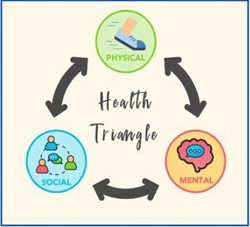
- Weekly celebration assemblies reinforce and celebrate the values of the TAB Way.
- Positive behaviour strategies, collaboratively developed codes of conduct and class rules ensure high expectations for behaviour and mutual respect.
- Pupil voice is valued through School Council meetings, where representatives discuss key issues and share feedback with their peers.
- The Eco-Council meets fortnightly to explore ways to care for the school, local environment and planet.
- Visits and assemblies from our local Police Community Support Officer help children develop an understanding of their rights and responsibilities as citizens of the world.
- Children develop their understanding of morality through assemblies focused on the British value of the rule of law, exploring the importance of fairness, justice and personal responsibility in their daily lives.
Social
- Children participate in a variety of school and community events, including performances at Worthing Assembly Hall, county or national sporting events, singing at local nursing homes and taking part in Young Voices in London.
- Opportunities to participate in sports and extracurricular activities broaden children's social interactions and experiences, helping them build essential social skills such as teamwork, communication and empathy. These activities encourage children to engage with peers from different year groups and backgrounds, fostering positive relationships and enhancing their ability to work collaboratively in diverse settings.
- Through carefully planned support from school staff, children are encouraged to develop their speaking and listening skills throughout all lessons. Each class creates its own talk rules, rooted in the British value of respect, which is also a core principle of the TAB Way.
- Staff have created talk and learning skills for the children to use to support their ability to communicate effectively, self-reflect, and regulate their learning metacognitively.
- Talk partners, group work and teacher-led discussions encourage positive relationships and confident communication.
- Older pupils support younger ones through reading buddy sessions, helping to promote a love of reading.
- Children take on responsibilities from an early age, including roles such as School Council representatives, Sports Leaders, Community Leaders, Eco Representatives, Digital Leaders, Arts Buddies and Music Leaders.
- Community Days bring children together across year groups to collaborate on themes like reading, diversity and team-building.
- Transition activities support children as they move into Year 3 or out of Year 6, helping them reflect on their progress and prepare for the next stage of their education. This includes visits to new classrooms, meetings with teachers and opportunities to discuss expectations and routines. Additionally, children are supported during transitions within the school, such as moving to a new year group or classroom, ensuring they feel confident and secure with upcoming changes.
Cultural
- Through our creative curriculum, children explore and appreciate both local and global cultures, developing a broader understanding of the world around them.
- Cultural events such as art exhibitions, themed days and performances provide opportunities for children to engage with traditions through costumes, storytelling, music and hands-on activities.
- The British value of ‘democracy’ is introduced through real-life experiences, including voting for their school council representatives. This helps children to understand their role in decision-making.
- Quality texts and a well-stocked library ensure exposure to a diverse
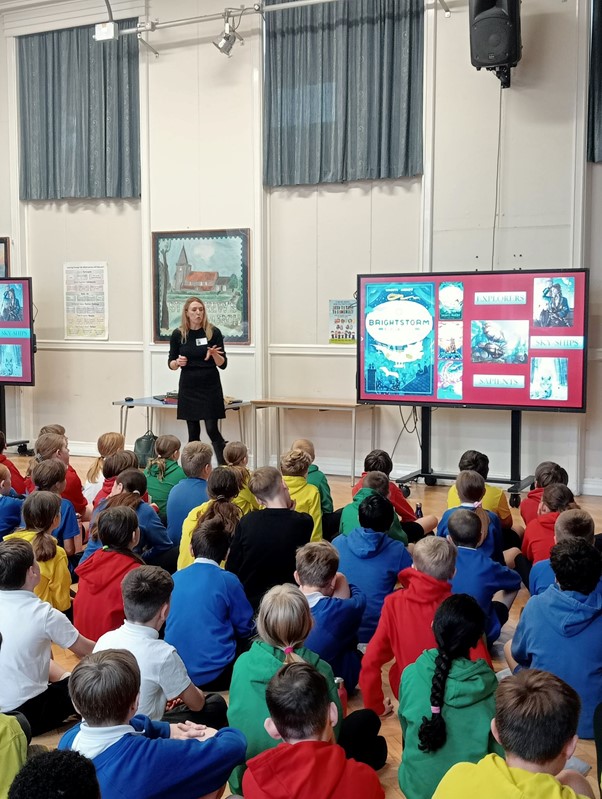 range of authors, cultures and life experiences, promoting understanding and empathy.
range of authors, cultures and life experiences, promoting understanding and empathy. - Topical discussions provide children with opportunities to engage with current events such as national and world pandemics, elections, royal celebrations and other significant global issues, all in an age-appropriate manner. These discussions are carefully framed to encourage critical thinking, help children form their own opinions and develop an awareness of the world around them. By exploring these topics, children also learn about the importance of empathy, social responsibility and the interconnectedness of global communities, preparing them to become informed and responsible citizens.
- Participation in national charity events, such as Children in Need, Comic Relief and Sports Relief, helps children connect with the wider community and understand the importance of social responsibility.
- Visitors from different cultural backgrounds share their experiences, enhancing children’s appreciation of global perspectives.
- Music plays a key role in cultural learning. All children receive African drumming lessons and have the opportunity to join the Samba Band.
- Visits to places of worship, such as mosques and Hindu temples, allow children to deepen their understanding of different religious and cultural practices.
- Cross-curricular links between art, DT, music, RE, PSHE, reading and writing enable children to develop a strong cultural identity by providing a rich and interconnected learning experience. These subjects work together to deepen children's understanding of various cultures, beliefs and traditions while encouraging them to explore their own cultural backgrounds. Through creative expression, reflective discussions and hands-on projects, children develop a broader perspective, learn to appreciate diversity and connect their learning to the world around them. This holistic approach fosters a well-rounded sense of self and cultural awareness.
Resources to support PSHE learning:
Websites and other links to extend and further understanding at home.
Health and Wellbeing
Relationships
https://kidshelpline.com.au/kids
https://www.pacerkidsagainstbullying.org/
Living in the wider world
https://natwest.mymoneysense.com/home/
https://www.gogivers.org/other-resources/toolkit/
Staying safe online

